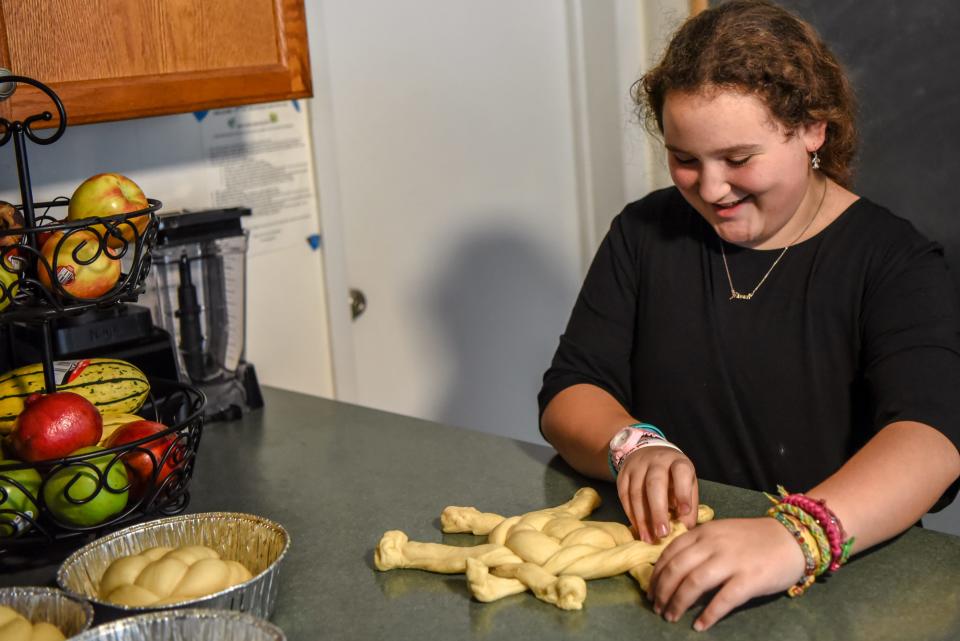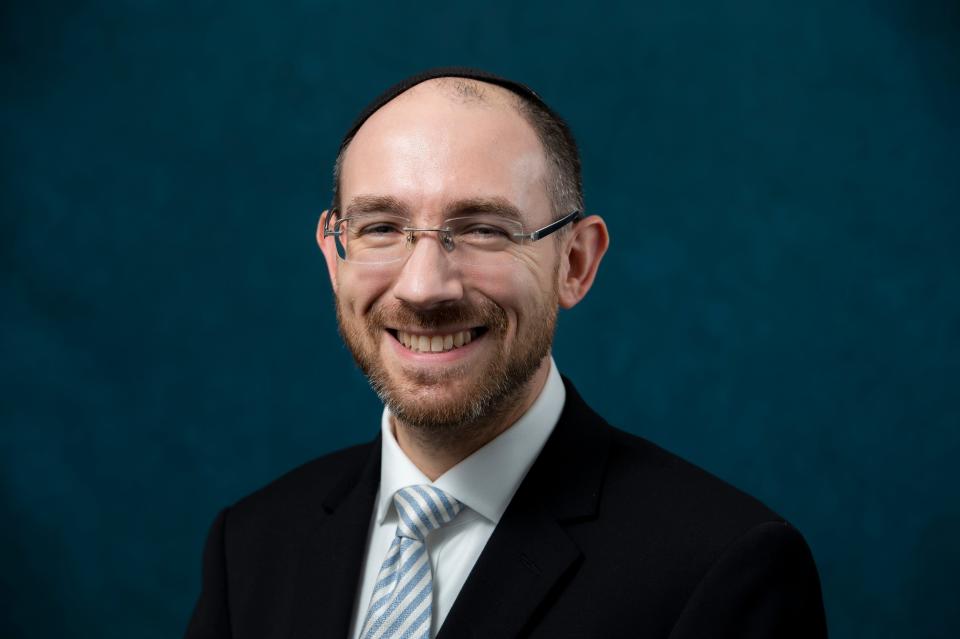Rosh Hashanah: Why Jews must wish each other a sweet New Year
I’m willing to wager that very few Jews will wish each other a “happy new year” on Rosh Hashanah, which begins on Friday, Sept. 15. But it won’t be because the ever-deepening divide of colliding political identities has started to split even tightknit communities, but because “happy new year” has never been a traditional Jewish greeting. In its place, since at least the Middle Ages, Jews have prayed for a “sweet new year.”
First recorded in a 14th century religious tome written by a renowned rabbi born in Cologne, the phrase traditionally follows the eating of apple dipped in honey at the festive meal. While this eccentric ceremony may seem unique, there was another practice — also introduced by the Jews of medieval Europe — in which eating honey played a pivotal role.
On their first day of school — clean as could be and dressed their best — young boys were at the time brought to their teacher with a wooden tablet displaying the Hebrew alphabet. The teacher would read the script, coat the tablet with honey, and invite the students to lick each letter clean.
This striking, if somewhat puzzling practice, is the subject of a whole book called "Rituals of Childhood," which explores its origins and speculates as to its purpose. But the teachings of the late Rabbi Lord Jonathan Sacks — a global ambassador for Judaism’s moral voice — sheds light on why Jewish students might have been invited to lick those honey-covered letters on their first day of school and why Jews dip apples in honey on their new year too.

In his description of Judaism’s central tenets, Rabbi Sacks claims that if Sir Francis Bacon’s famous phrase —“knowledge is power”— is true, then universal literacy is the best guarantee of universal liberty. And devoted to advancing the dignity of every single human being — as bearers of the image of God — Judaism was the earliest civilization committed to universal education. For Rabbi Sacks, when the Hebrew Bible summons the Israelites to become a “kingdom of priests” [Exodus 19:6], it means that they are to be a people where “everyone can read and write, and thus have access to knowledge, power and dignity on equal terms.”
This is why, for Rabbi Sacks, Judaism’s heroes have always been its teachers and why its supreme religious experience has never been peace or prayer or prophecy, but time spent in study. In his words: “every Jew is an equal citizen of the republic of faith because every Jew has access to its constitutional document… and is literate in its provisions.”
That said, education is not easy for most — especially the young. Acquiring literacy can be slow and strenuous; at the start, scholastic mastery can be hard and arduous. So, the Jews of medieval Europe found a way to make it sweet — they found a way to help their children see that despite its toll and toil, wisdom is a gift that will lift them up.
Licking honey-covered letters on their first day of school, gave students the sense that what lay ahead, though tricky, would be sweet — and the same can be said of every Jew who eats honey on the first day of their new year.
Looking ahead at the more than half-a-million minutes that make up a year can be deeply discouraging. The idea of mastering every moment looms as a certain impossibility, and any sense that it will be mostly painless or peaceful feels like a fantasy. Life is rarely gentle, and blunders are all but guaranteed.
Seen this way, a New Year’s Day can induce anxiety and provoke a deep feeling of unease—so, those same Jews who made school sweet for their children, brought honey into their homes to remind the grown-ups that life can be sweet as well.
A new year will bring its toll and toil, but also opportunities. It will offer opportunities to heal pain, relieve grief, and chase dreams — to spread joy and sow the seeds of hope. This Jewish tradition teaches that if you find yourself facing an arduous path ahead, and start feeling down or overwhelmed, have some honey.
So, as we look towards Rosh Hashanah 2023, let’s wish one another a “sweet new year.”
As Rabbi Sacks puts it: “Life may be hard, but it can still be sweet.”
Rabbi Dr. Dov Lerner is a member of the inaugural cohort of Sacks Scholars, an international fellowship of educators and communal professionals dedicated to perpetuating the legacy of Rabbi Lord Jonathan Sacks. He serves as the rabbi of the Young Israel of Jamaica Estates in Queens, New York, and on the faculty of Yeshiva University’s Straus Center for Torah and Western Thought in New York.

This article originally appeared on NorthJersey.com: Rosh Hashanah 2023: Why Jews must wish each other a sweet New Year

